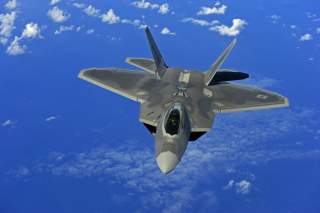Restoring American Supremacy
America may have shed the illusion that it is an omnipotent power, but that is no reason to conclude that its influence cannot be revived.
What the president fails to realize is that his outreach to adversaries such as Iran—or, for that matter, Cuba—does little to solidify American leadership of the free world. Alienating America’s allies not only encourages its adversaries, but also increases the likelihood that other states, like India, will hesitate to align themselves too closely with Washington. America’s credibility rests squarely upon its reliability; if the president wishes to restore that credibility, his allies must view him as a reliable partner.
FOR SIX years, the Obama administration has endeavored to focus primarily on domestic affairs and avoid the posture of pursuing American predominance in international affairs. To the extent that it has succeeded, it has done so at the cost of its credibility with allies, friends and adversaries worldwide. Nevertheless, despite his best efforts, the president has found that he cannot remain aloof from foreign developments. Most tellingly, despite all his efforts to avoid military entanglements in the Middle East and elsewhere, the president has sent forces back into Iraq and authorized air-combat or support operations in Libya, Syria, Yemen and West Africa.
Obama must bring about a terminus to the reduction in American defense resources that has eaten away at Washington’s military capability. Obama has long acted upon the belief that defense must contribute its “fair share” toward deficit reduction. This belief was always misplaced, since entitlement programs have had a much greater impact on both deficits and the national debt, but Obama has shown little interest in serious, necessary entitlement reforms. Even so, with the economic recovery gathering force and annual budget deficits leveling off, Obama is now in a perfect position to reach an agreement with Congress to protect defense spending from the impact of the budget sequester. He should seize the opportunity that the economic recovery has handed him.
The whittling away of American preeminence that we have witnessed over the past decade was not foreordained. It was the product of conscious choices that made each new decision to retreat seem inevitable. America may have shed the illusion that it is an omnipotent power, but that is no reason to conclude that its preeminence cannot be restored. Revisiting our policies toward Russia, China and the Middle East to reverse the drift that has prevailed during Obama’s presidency would be a good start.
Dov S. Zakheim was the under secretary of defense (comptroller) and chief financial officer of the U.S. Department of Defense from 2001 to 2004. He is vice chairman of the Center for the National Interest and serves on the Advisory Council of The National Interest.
Image: Flickr/Official U.S. Air Force/CC by-nc 2.0

